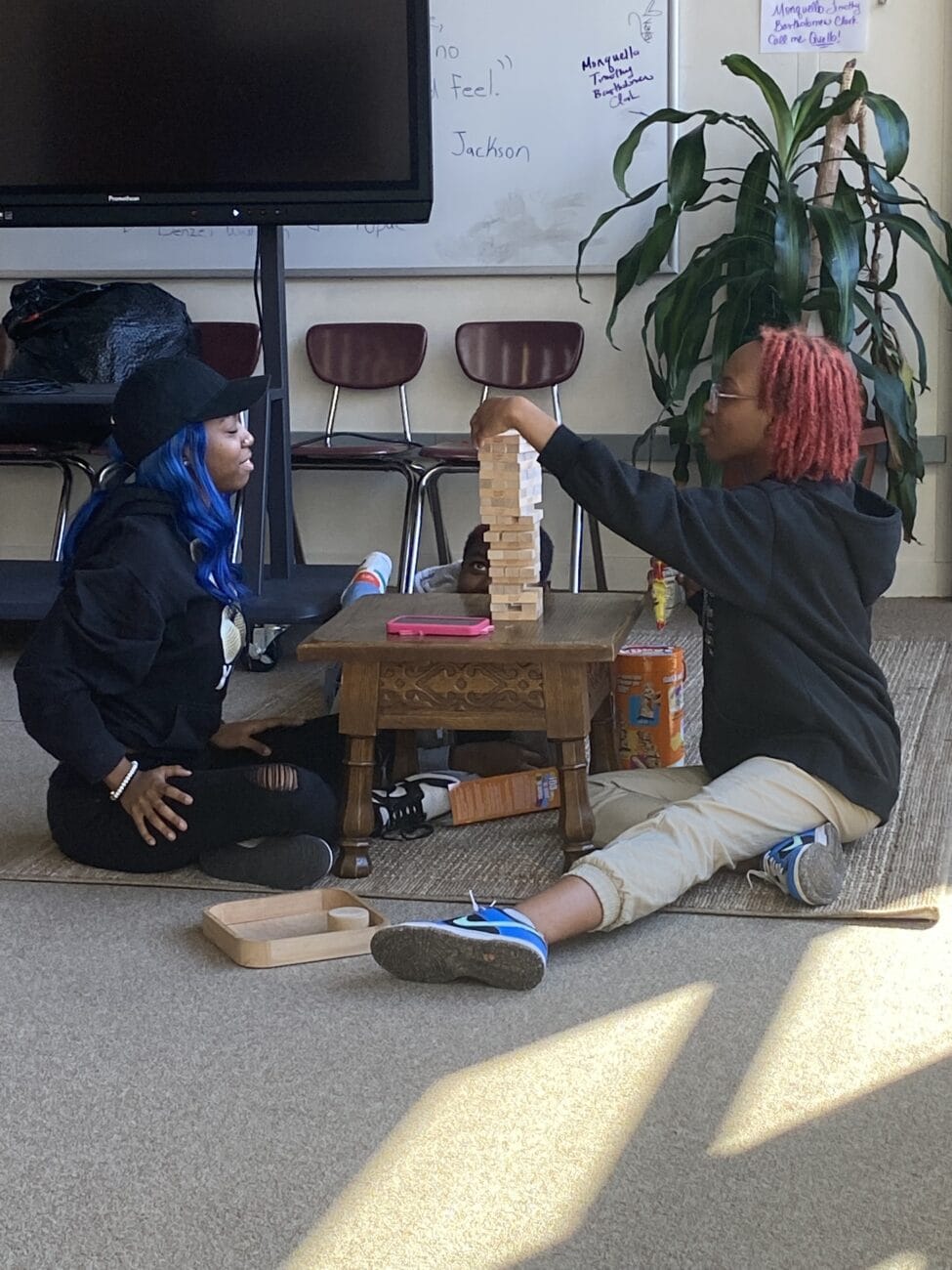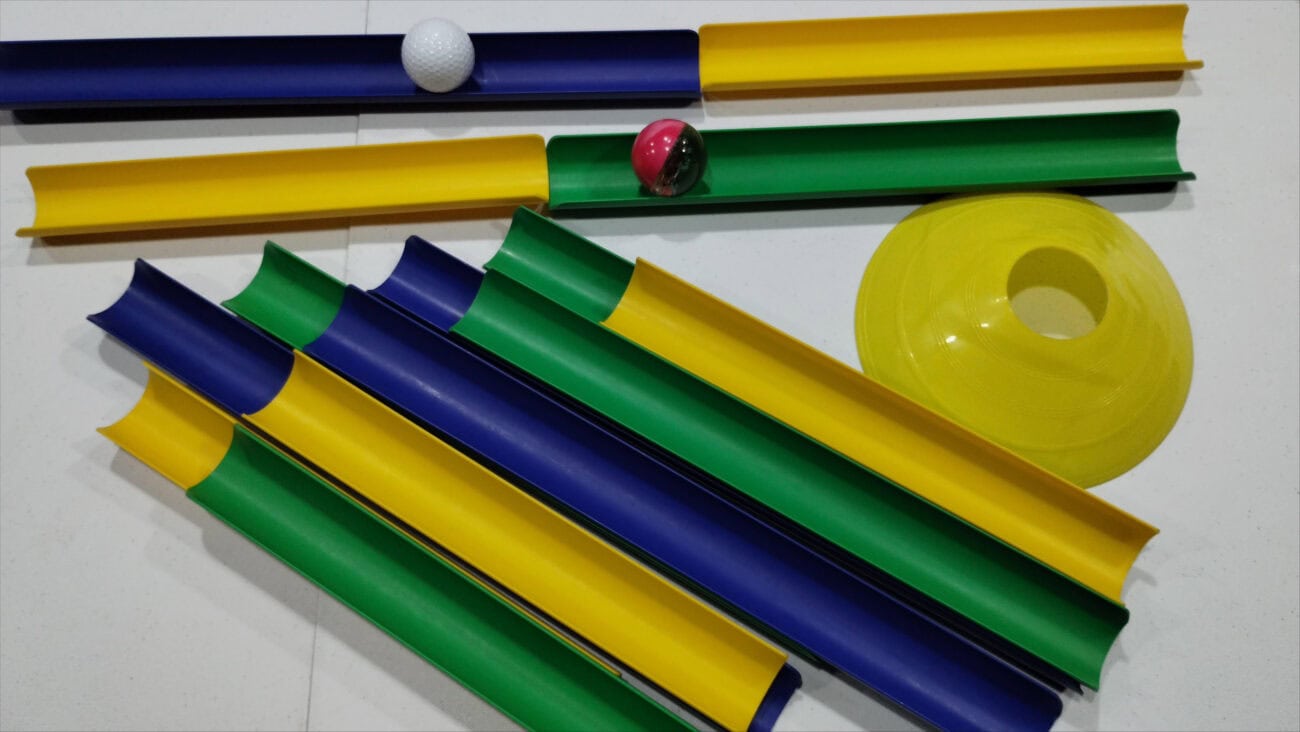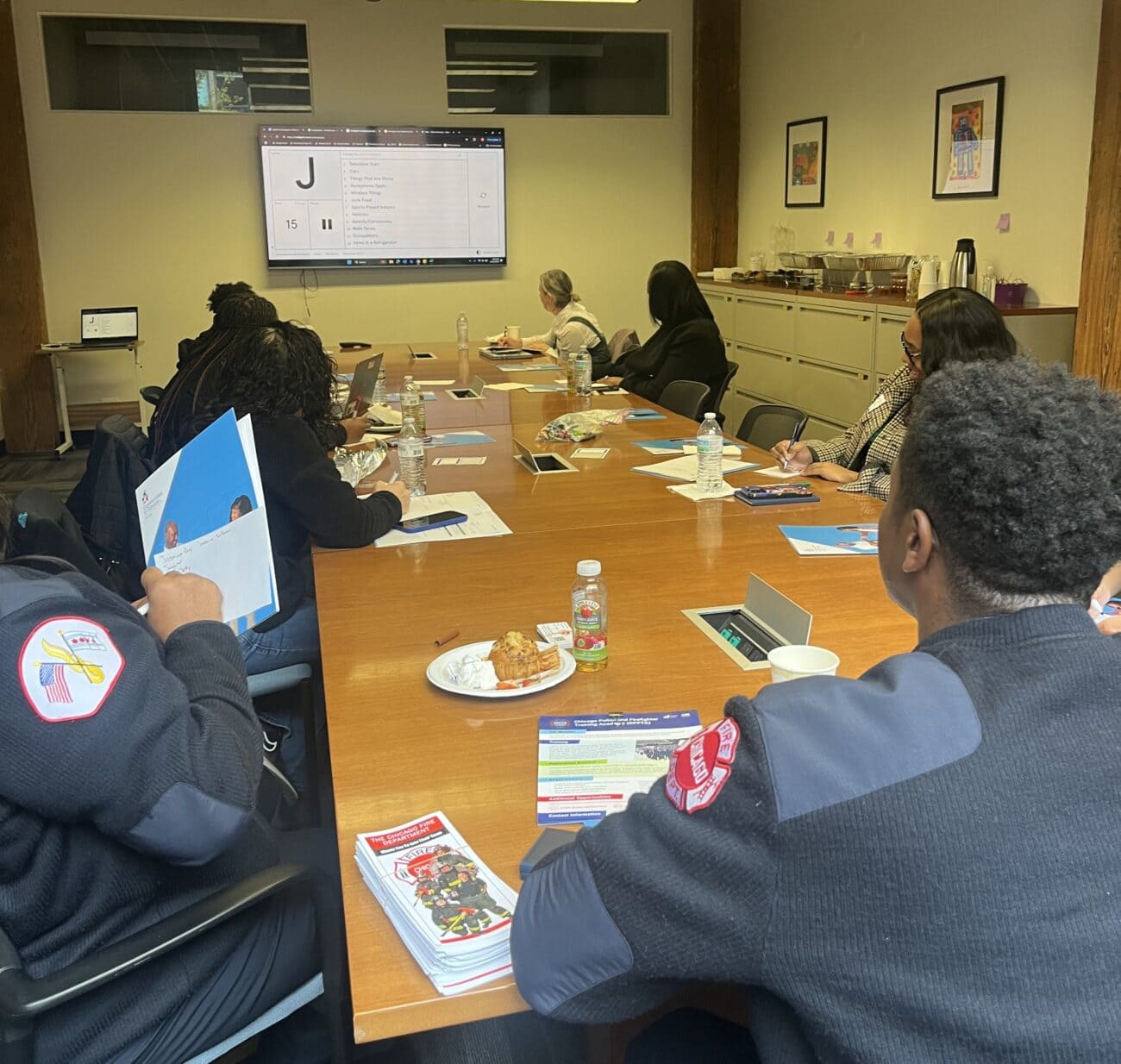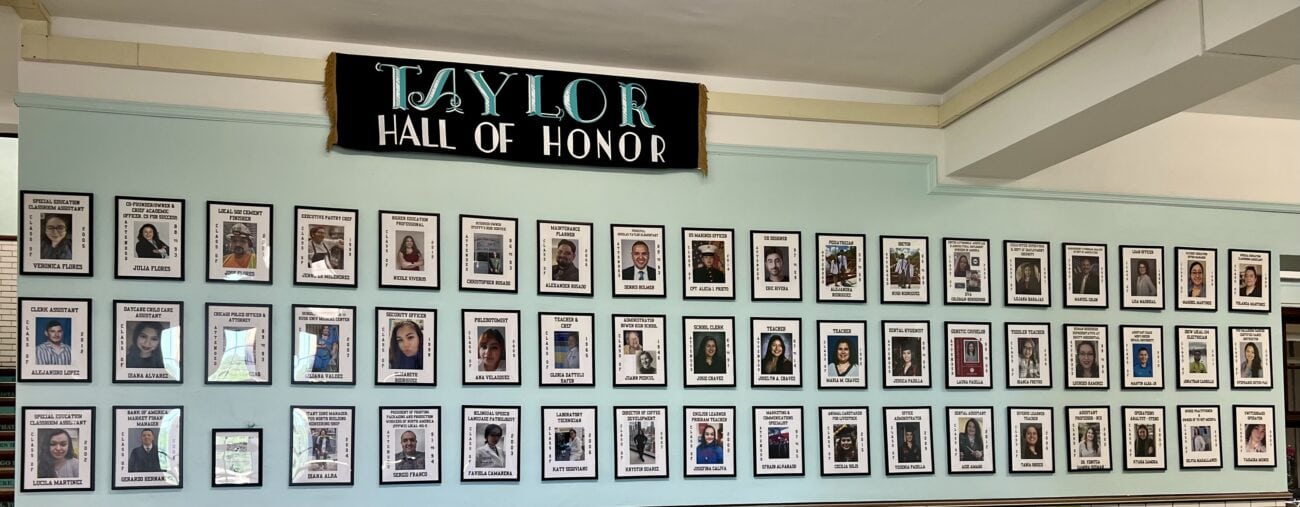Play.
On the surface, it might seem like an unnecessary part of a student’s school day. Research, though, shows that play is critical for a child’s healthy growth and development. According to the American Academy of Pediatrics, play helps young people manage stress, and it even improves their brain function.
Communities In Schools (CIS) of Chicago’s Intensive Team uses play as an important tool in their work as well. Each of CIS of Chicago’s 36 Student Supports Managers serve a caseload of 50 students with direct, 1:1 supports that help them stay in school. Game play is one strategy the team uses as a first step in building rapport with a young person.
A tool for building healthy relationships.
At Graham Elementary School on the South Side, Student Supports Manager Kaitlin uses games as an entry point for talking with students.
When she noticed a seventh grader crying in the hallway earlier this fall, Kaitlin asked if he wanted to come into her office to talk. The student wasn’t ready to talk yet, so first she gave him some space and let him finish crying. Instead of overwhelming him with a flurry of questions, Kaitlin decided to start with a simple one. “Want to play a game?” she asked.
They played Jenga for half an hour in silence, and by the end of that 30 minutes, the student was making jokes. After an hour, he was ready to talk about what had happened — a family member had been affected by gun violence, and he was worried. Throughout their sessions, Kaitlin has used games like Jenga and checkers as a way build a healthy relationship with him and as a way to get him to open up and share how he’s feeling.
A tool for managing emotions and interacting positively with peers.
Kaitlin also uses play-based activities in her group work. Games like Uno and Hedbanz — where students wear pictures of objects on their foreheads and take turns guessing “what am I?” — are two ways that Kaitlin can see how her students interact with others and regulate their emotions.
Do they get upset when they don’t have the right answer on the first try? Do they let others in the group have the spotlight when it’s not their turn? How do they react when time runs out?
These are indicators for Kaitlin which of the students will benefit from working in a group. Then, she uses games throughout her sessions moving forward to help students develop those critical social and emotional skills that translate to their behavior in the classroom.
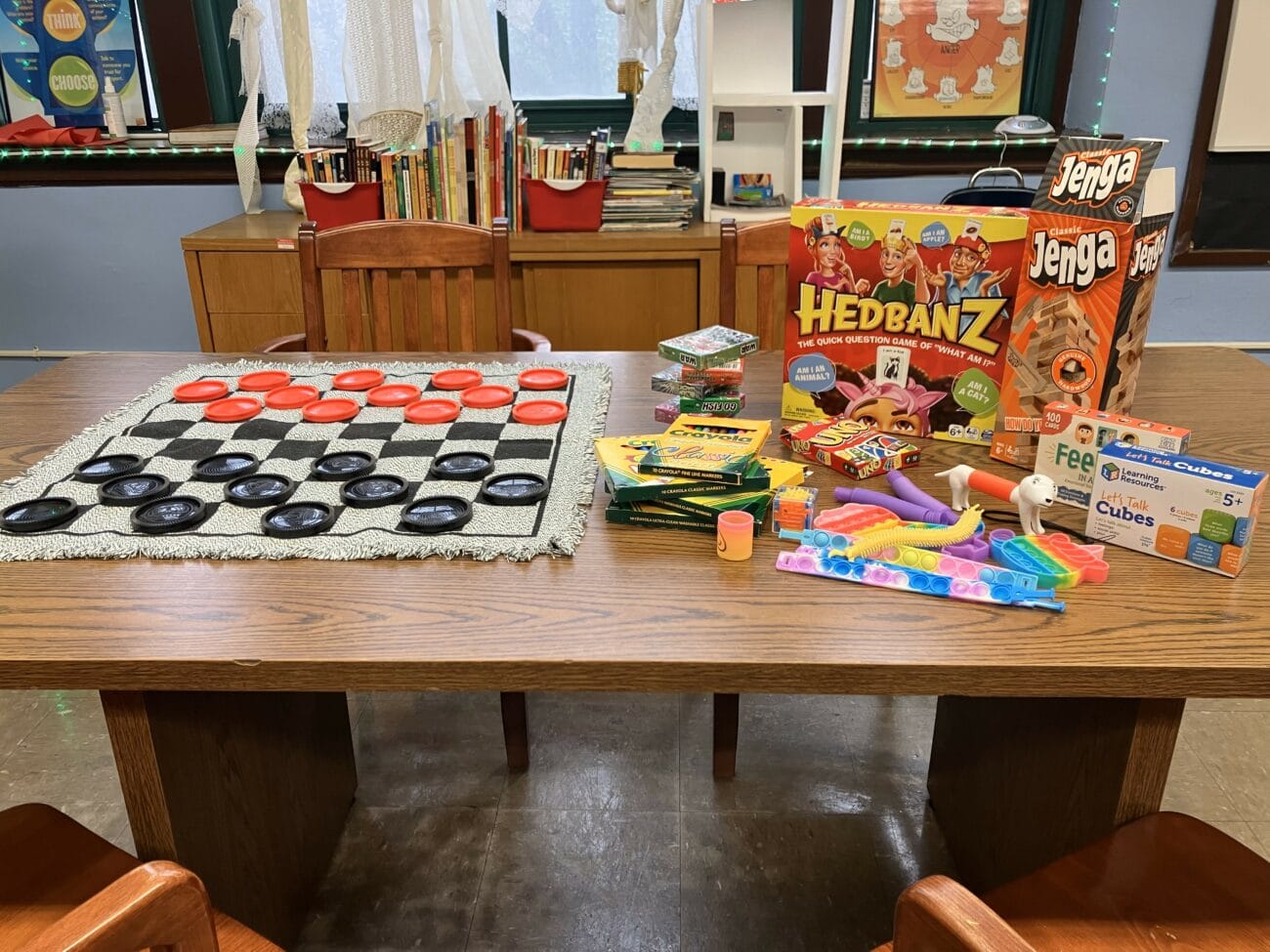
A tool for building confidence and even promoting attendance.
At Tamayo Elementary School on the Southwest Side, Student Supports Manager Bernadette found that Jenga and Uno were good incentives for a middle-school student struggling with attendance.
Bernadette recognized that the student had a harder time coming to school because he didn’t have strong relationships in the school building. In response, Bernadette focused on getting to know him as a person. She found that he was starting to feel more comfortable with her if they played Jenga and Uno, and she told him that if he came to school before the tardy bell rang, they’d play chess. Games helped incentivize the student to come to school on time, and it also boosted his confidence. He frequently beat Bernadette at chess and loved to tell her as much.
A tool for creating unity.
At Michele Clark High School on the West Side, Student Supports Manager Simone uses games when she’s helping groups of students develop relationships, especially when they don’t typically interact with each other. For her, games help the students rethink their perceived assumptions about one other. It creates a space where they are having fun and making connections with each other independently.
